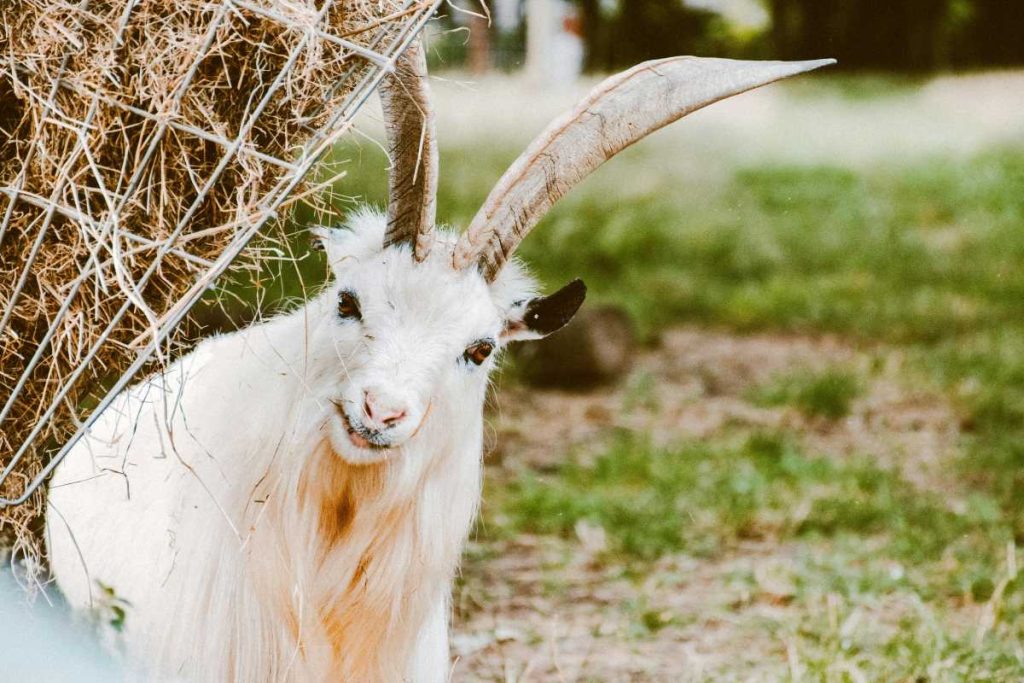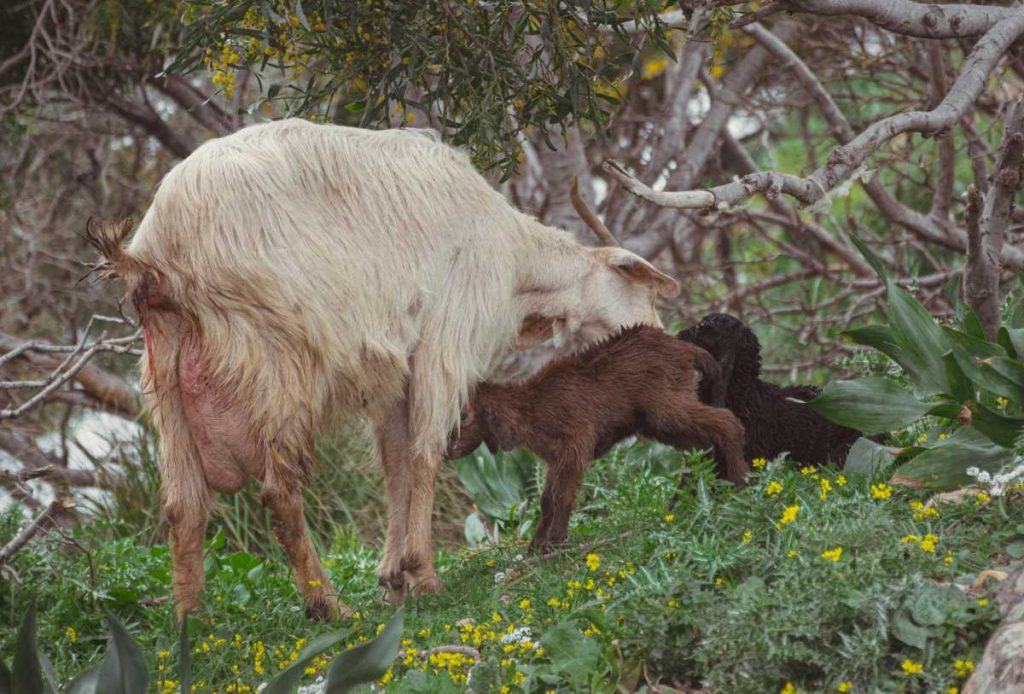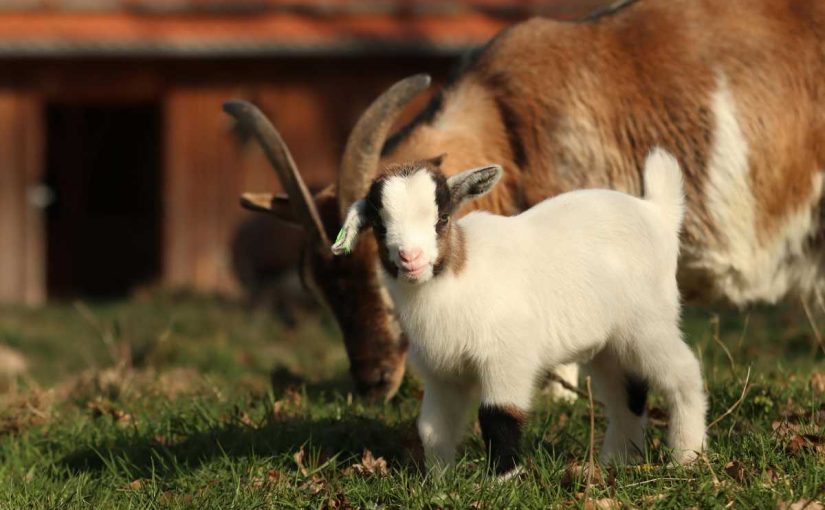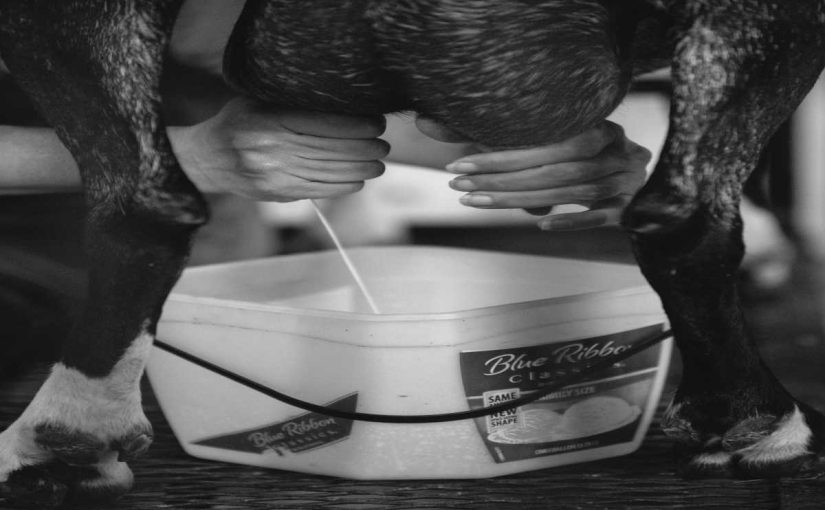Feeding pregnant and lactating goats is crucial for their health and the health of their offspring. Proper nutrition ensures that both the mother and kids thrive during these critical stages. In this comprehensive guide, we’ll discuss the dietary needs of pregnant and lactating goats, including the types of feed, quantities, and essential nutrients required for optimal health.
1. Understanding Goat Nutrition
The Basics of Goat Nutrition:
Goats are ruminants, meaning they have a specialized digestive system that allows them to break down fibrous plant material efficiently. Their diet should primarily consist of high-quality forage, supplemented with grains, minerals, and vitamins as needed.
Why Nutrition Matters:
- Supports Growth: Proper nutrition during pregnancy supports the development of the fetus and prepares the mother for lactation.
- Maintains Health: A well-balanced diet helps prevent metabolic disorders and other health issues in both pregnant and lactating goats.
- Enhances Milk Production: Adequate nutrition during lactation is essential for maintaining high milk production levels.
2. Nutritional Requirements for Pregnant Goats
First Trimester (0-90 Days):
During the first trimester, the nutritional needs of pregnant goats do not significantly increase. They require a balanced diet that focuses on maintaining their health.
- Forage: Good quality hay or pasture should be the primary component of their diet.
- Grains: If the goat is underweight, a small amount of grain (about 0.5-1 pound per day) can be added.
- Minerals and Vitamins: Provide access to a mineral supplement designed for goats to ensure they receive essential nutrients.
Second Trimester (90-150 Days):
As the pregnancy progresses, nutritional needs increase to support the growing kids.
- Forage: Continue providing high-quality hay or pasture.
- Grains: Increase grain intake to about 1-2 pounds per day to support fetal growth.
- Protein Sources: Include protein-rich feeds such as soybean meal or alfalfa hay to meet increased protein requirements.
Third Trimester (150 Days to Kidding):
The final trimester is critical, and the nutritional needs are at their highest.
- Forage: Maintain good quality forage but consider increasing the quantity if the goat is eating less due to the size of the unborn kids.
- Grains: Increase grain intake to 2-3 pounds per day. This will provide the energy required for both the mother and the developing kids.
- Water: Ensure that the goat has constant access to clean, fresh water, as hydration is essential during this period.
3. Nutritional Requirements for Lactating Goats
Immediate Post-Kidding:
After kidding, a mother goat’s nutritional needs change dramatically as she begins to produce milk.
- Forage: Continue providing high-quality hay or pasture.
- Grains: Increase grain intake to about 3-5 pounds per day, depending on the amount of milk being produced. Lactating goats require more energy to support milk production.
- Protein Sources: Include protein-rich feeds to maintain milk quality and quantity. Alfalfa and soybean meal are excellent choices.
- Minerals and Vitamins: Offer a high-quality mineral supplement, especially one that contains calcium and phosphorus, to support milk production.
Ongoing Lactation:
During the lactation period, continue to adjust the diet based on the goat’s milk production and overall health.
- Monitoring Milk Production: If milk production decreases, consider increasing grain and protein intake.
- Weaning: Gradually reduce the grain and high-quality forage as kids are weaned, transitioning back to maintenance levels of feed.

4. Feeding Strategies for Pregnant and Lactating Goats
Establishing a Routine:
Developing a consistent feeding routine helps goats feel secure and encourages healthy eating habits.
- Regular Feeding Schedule: Feed your goats at the same times each day to create a routine.
- Free Choice Access: Allow goats to have free access to hay and water at all times.
Feeding in Groups:
If you have multiple goats, feeding them in groups can help manage their intake more effectively.
- Separate Feeding Areas: If you notice that certain goats are dominant and others are being pushed away from food, consider setting up separate feeding areas.
- Monitor Weight and Condition: Regularly assess the body condition of your pregnant and lactating goats. Adjust feed as needed based on their health and weight.
5. Important Nutritional Considerations
Avoid Overfeeding:
While it’s crucial to provide adequate nutrition, overfeeding can lead to obesity and related health problems.
- Monitor Body Condition Score: Regularly assess the body condition of your goats to ensure they are maintaining a healthy weight. The ideal score for pregnant and lactating goats is between 2.5 and 3.5 on a scale of 1 to 5.
Hydration:
Always ensure that your goats have access to clean, fresh water, especially during pregnancy and lactation, as hydration is vital for milk production and overall health.
Quality of Feed:
Always provide high-quality feed and forage. Check for mold, dust, or contaminants that could harm your goats’ health.
6. Common Nutritional Issues
Metabolic Disorders:
Pregnant and lactating goats are susceptible to metabolic disorders, such as milk fever and ketosis.
- Milk Fever: This condition occurs due to low calcium levels, particularly around kidding time. Provide a mineral supplement that contains calcium to prevent this.
- Ketosis: This occurs when energy intake is insufficient, leading to fat mobilization. Ensure a sufficient energy supply through grains and high-quality forage.
Signs of Nutritional Deficiencies:
Monitor for signs of nutritional deficiencies, such as poor coat condition, weight loss, and low milk production.
- Consult a Veterinarian: If you notice these signs, consult a veterinarian for a nutritional assessment and recommendations.
7. Conclusion: Caring for Pregnant and Lactating Goats
Feeding pregnant and lactating goats requires careful attention to their nutritional needs. By providing a balanced diet rich in high-quality forage, grains, and essential nutrients, you can ensure that your goats remain healthy and productive during these critical periods. Always monitor their body condition and adjust their feed as necessary, and don’t hesitate to consult a veterinarian or an experienced goat handler for advice.
With proper care and nutrition, your goats will thrive, providing you with healthy kids and plenty of delicious milk. Happy goat farming!




